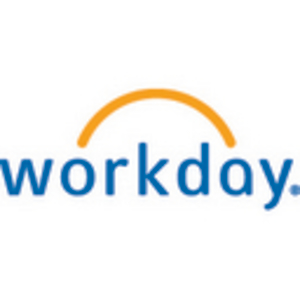As a consultant, I use Prism Analytics to implement my client systems. I first have design sessions with them, where we discuss their business gaps and then understand how Workday Prism Analytics can bridge those gaps. Then, my main responsibility is to complete the technical implementation and train the client once the design part has been done.
I really like the flexibility the solution provides in terms of data transformation. Workday introduced Prism Analytics mainly because many clients wanted to merge data from different systems and then work with it to get some insights out of it. For that, they previously used tools like Power BI. Workday Prism Analytics gives you the power to do all the data transformations within Workday itself without taking out crucial data to a third system.
I really like the way Workday has enabled Prism Analytics to be that one solution where you can bring everything. It also provides you the flexibility that things like the security model of Workday are still in place. You don't have to redo your security configuration if you do the data transformation outside Workday.
I think there are still some gaps in the solution. There is not much flexibility in how we can add external data within Workday Prisma Analytics. For now, Workday has enabled the SFTP server and Amazon Web Services. However, more tools can be allowed to load data into Workday Prism Analytics to make connecting those third-party systems easier.
I have sometimes seen performance issues with the solution. The system does not perform fast whenever you have to deal with a large amount of data.
I have been using Workday Prism Analytics for a little more than one year now.
Although the solution can sometimes become very slow, I have never had major issues with its stability.
I rate the solution’s stability a nine out of ten.
We have only three to four consultants knowledgeable in Workday Prism Analytics, which we use primarily on our client side.
I rate the solution’s scalability a seven out of ten.
I never had to contact the support team, but I have seen some knowledge articles they publish on the Workday community. Whenever I have any doubts, I mostly find a related article on the Workday community that I can refer to. Prism Analytics is a new tool compared to the other Workday modules, and they are making sure that the content on the Workday community website is very helpful and up to date. I think that is quite good.
The deployment is usually easy to do because it's just like a module within Workday. Generally, the customers who use Prism Analytics are Workday customers who have been using Workday for quite some time.
The deployment is easy, and it follows the Workday security model. Whatever security you have already configured, you can simply connect it to Prisma Analytics. The solution's deployment is not very complex.
Based on whatever I have heard, Workday Prism Analytics is considered an expensive tool. In fact, that has been one of the hindrance factors for Workday in making Prism Analytics more sellable.
Workday Prism Analytics is quite a technical tool. In my project, we did the first design part and implemented Workday Prism Analytics. During the client handover, we requested that our clients have someone who can handle all the technical things within Prism, which will come with its maintenance. I don't think the solution is very easy to use. However, once you get the hang of it, you will understand that it's a very powerful tool.
Workday Prism Analytics is worth the money for a global organization that uses 20 different systems for its business and wants to make Workday more powerful by putting in more data and giving itself more insights. If you are a small client present in only a few countries and your system landscape is not varied, you can decide whether you would like to invest that much money in Workday Prism Analytics.
I would recommend the solution for Workday customers. All Workday customers should at least have a discussion with their implementation partner and explore the possibilities of using Prism Analytics. It will make their existing Workday system more powerful and give them more insights and valuable information in one place rather than looking for it elsewhere.
Overall, I rate the solution a nine out of ten.





